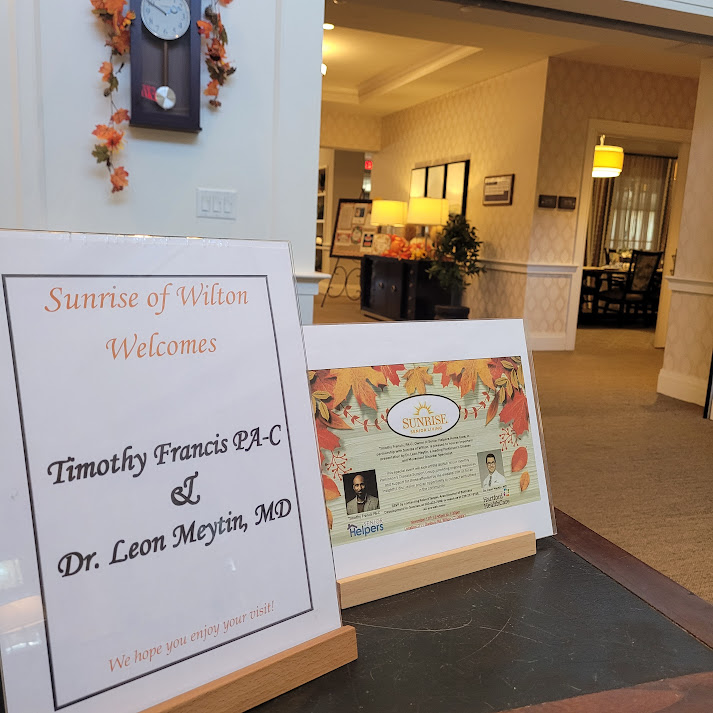Today, we had the honor of collaborating with Dr. Leon Meytin, a highly regarded neurologist and movement disorder specialist, to deliver an enlightening lecture at one of the communities where Senior Helpers provides services. Dr. Meytin, a graduate of Johns Hopkins School of Medicine, is known for his expertise in Parkinson’s disease and his dedication to improving patient outcomes through education and care.
During his lecture, Dr. Meytin covered a range of important topics related to Parkinson’s disease, including:
1. Understanding Parkinson’s Disease
-Prevalence: Parkinson’s disease is common, particularly in individuals over 65, with about 5% of the population affected. The actual numbers may be even higher due to underdiagnosis.
- Symptoms: Key symptoms include tremors, balance issues, difficulty with motion, and falls. Additional symptoms often include anxiety, depression, changes in handwriting, and sleep disturbances.
- Diagnosis: Parkinson’s is primarily diagnosed through clinical evaluation. Advanced tests like skin biopsies and DAT scans may be used for uncertain cases.
- Lifespan: Most individuals with Parkinson’s can live full lives. The main health risks stem from complications like falls and pneumonia.
- Genetic Component: Fewer than 1-2% of cases have a genetic basis, making hereditary factors rare.
- Treatment: While there is no cure, treatment options such as medication are highly effective and tailored to the severity of symptoms.
2. The Importance of Exercise in Managing Parkinson’s Disease
- Exercise for Prevention and Management: Aerobic exercise plays a key role in reducing the risk of Parkinson’s disease and slowing its progression. It also helps lower the risk of dementia.
- Recommended Types of Exercise: Activities that elevate heart rate and induce sweating, like aerobics, are preferred. Walking is beneficial, but more intense exercise yields better results when possible.
- Physical Therapy: While physical therapy is important for improving balance and preventing falls, it cannot replace aerobic exercise.
- Specialized Classes: Programs like Parkinson’s boxing and dance classes improve coordination and balance while offering social and motivational benefits.
3. Environmental Factors in Parkinson’s Disease:
- Environmental Risks: Exposure to pesticides and chemicals has been linked to Parkinson’s, though proving causation is challenging. Awareness of these risks remains crucial.
- Public Health Awareness: Legal and public health campaigns have helped raise awareness about the potential environmental contributors to Parkinson’s.
For more information about our services or to join our next PD support group, please don’t hesitate to contact us.
#ParkinsonsSupport #SeniorHelpers #CommunityCare #MovementDisorders

